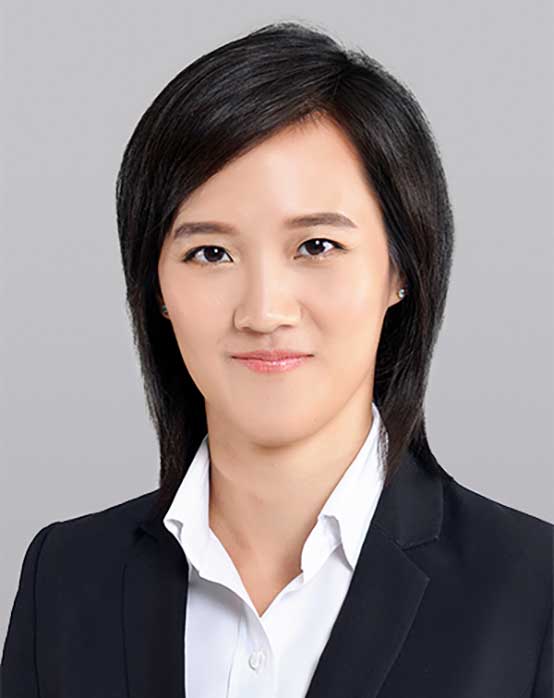The process of adoption means beginning a new legal relationship between a child and its adoptive (non-biological) parents. This may have serious consequences for all involved, and it severs the legal relationship that existed between the child and their biological parents. The adopting parents now assume all rights and responsibilities over the child.
The only legal way to do this in Singapore is through the Family Justice Courts, due to the complexity of the process. If you need advice on this subject, please contact our adoption lawyers for an initial, free of charge consultation.
The legal acts which regulate adoption in Singapore are:
- The Family Justice Act 2014
- The Family Justice Court Rules
- The Adoption of Children Act 1939
- Practice directions.
Adoption—The Legal Process
The child’s circumstances dictate which process will be used. For example, whether the child is Singaporean, a foreign child, or from the People’s Republic of China, for which there are additional requirements.
Pre-adoption briefing
The first step is to register for a meeting with the Ministry of Social and Family Development (MSF), who appoint an accredited agent to meet with prospective parents. The purpose of this mandatory pre-adoption briefing is to explain the process, the rights and responsibilities of adoptive parents, post-adoptive services, and how to talk to the child about the adoption. Anyone adopting a stepchild or relative must also go through this same process.
Home Study Report
A Home Study Report is necessary for anyone wanting to adopt a foreign child, or a child in the care of the MSF. The purpose is to verify that you are a suitable parent to adopt and raise a child. Each report is valid for one adoption and lasts two years, during which time you may find a child to adopt.
If the adopted child is a stepchild or relative, a home investigation may be ordered by the court, rather than a Home Study Report.
Finding a child to adopt
Once you have attended the briefing, and obtained the Home Study Report (if necessary), you can then begin to look for a child to adopt. You may wish to use the MSF Fostering Scheme, or alternatively you can ask family and friends to help you. However, if you wish to adopt a child from China, you cannot find the child yourself; instead, you must ask the China Centre for Children’s Welfare and Adoption (CCCWA) and they will identify a child, and notify you when the child is available.
Obtain consent from the child’s birth parents or guardians
The next step once a child has been identified is to get the notarised consent of the child’s birth parents or legal guardian. This means they give up all their duties, rights and obligations to the child, once the adoption order is given.
Where the legal guardian or birth parents do not exist, you must instead get consent from:
- Whoever has custody of the child
- Whoever is legally liable to support the child
- The parents/guardians of the birth parents, in cases where the birth parents are younger than 21 years old.
In cases where none of these people can give consent, you can apply to the Family Court to remove the need for consent.
Obtain the child’s ID documents
If the child is a permanent Singapore resident, you need to get their passport and birth certificate.
Dependant’s Pass
When adopting a foreign child, you will need a Dependant’s Pass in order to bring them to Singapore. It allows the child to remain in Singapore until the completion of the adoption process. To get this pass, you need the child’s ID documents and the notarised consent mentioned above.
Sometimes the adoptive parents are required to go to the child’s home country and comply with that country’s requirements before the MSF will issue a Dependant’s Pass. But once issued, you can then apply to the Family Court to adopt.
Applying to the Family Court
When filing an adoption application, you must submit the following documents:
- Originating Summons for Adoption
- Adoption Statement
- Consent to adoption and dispensation of services
- Supporting affidavits
The Registrar, once these documents are filed, then sets a hearing date to address preliminary issues.
Guardian-in-Adoption (GIA)
A temporary legal guardian will be appointed by the court at the first hearing, to look after the child’s interests in court, as set out in section 10(3) of the Adoption of Children Act. There may also be more background checks and interviews at this stage. It is the role of the GIA to carry out home visits and do everything needed to produce a complete report for the court. The GIA must have the full co-operation and attendance of the adoptive parents throughout.
Court hearing
The court has power to summon any witness, including biological parents, to attend the hearing. The adoptive parents (or their lawyer) must also attend. The court will consider all reports and affidavits, and will have the child’s best interests and welfare as their priorities at all times.
Possible outcomes
- A conditional order is granted: the adoption can proceed, but with specific terms and conditions attached.
- An unconditional order is granted: the court believes it to be in the best interests of the child.
- The proceedings are adjourned, pending further evidence.
- An interim order is issued, which delays the granting of the final order. The adoptive parents are given temporary custody of the child for no longer than 2 years. In effect, this acts like a probationary period before a final order is given. The GIA continues to be the child’s legal guardian during the interim period.
- The application is dismissed: the court does not think the adoption order is in the child’s best interests.
Collecting the new birth certificate
The Immigration and Checkpoints Authority (ICA) send an adopted child a new birth certificate. For children adopted from overseas, parents must apply to the ICA to obtain citizenship for the child, as it is not automatically granted in the adoption process.
Cost of adoption
It is illegal under section 11 of the Adoption of Children Act to make or receive and payment for adoption, unless the court has sanctioned it. A court may allow the following payment scenarios:
- Payment of hospital bills or other medical fees
- Travel costs
- Lodging and food costs for the child and its birth mother
- Other costs to reimburse the biological mother.
There are many fees involved in the process, such as professional agency fees, travel documents, birth certificates, admin costs and fees to notarise documents.
You must disclose any payments made during the process to the court, providing the original proof of payment. The court will only make the adoption legal if it is satisfied that the payment to the birth parent came under section 5(c) of the Act.
Our fees are transparent, clear and fixed
- With consent: $2,900
- Without consent: $3,900
We are happy to discuss your circumstances – please contact us.
How long does adoption take?
The length of an adoption process depends on the circumstances of each case. When the adopted child is from overseas it will take longer, because the adoptive parents must satisfy that country’s requirements before also satisfying those of Singapore. The process of getting a Dependant’s Pass, and Home Study Report and the other procedures all take time.
If the adoption is contested, it will take even longer.
Who can adopt in Singapore?
Under section 4 of the Adoption of Children Act, the following criteria are set out:
- Applicants must be aged 25 years or older
- The age gap between child and applicant must be at least 21 years
- If two people apply, they must both be aged 25 or above unless circumstances are exceptional
- A girl may not be adopted by a single male unless exceptional circumstances apply
- A married person must have the consent of their spouse if they wish to adopt alone
- Applicants must be residents of Singapore, or have a pass that gives them resident status, as judged by the Family Court.
The court may grant an adoption in certain exceptional circumstances, for example if the child is a relative of the applicant, or the applicant is younger than 25 years old, or there is an age gap less than 21 years between child and applicant.
Children eligible for adoption are protected by law in Singapore, in order to safeguard their welfare and discourage scams. However, these protections can complicate matters.
Anyone considering adopting a child should speak to family lawyers with experience in adoption. Follow all procedures and prepare all necessary documents – this will ensure you don’t waste your time, or that of the court. Then your adoption will be as smooth and quick as possible.


